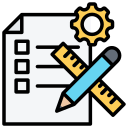Chosen theme: Choosing the Right Language School for Exam Prep. Ready to pick a school that lifts your target score from a wish to a plan? Here, we blend practical checklists, lived stories, and research-backed insights so you can choose confidently, start smarter, and feel supported from your first class to exam day. Subscribe and tell us your exam date—we’ll nudge you with timely, motivating reminders.
Start With Your Exam and Your Why
01
Write down the exact exam, your required score, and the last possible test date. Schools that ask about these early usually provide focused roadmaps, efficient timelines, and meaningful milestones you can actually track.
02
Does the school specialize in your exam’s tasks—speaking interviews, academic writing, or integrated listening? Ask for sample lesson plans that mirror official sections and scoring criteria, not generic conversation practice.
03
Sara needed a band jump in just six weeks. She chose a school that timed every mock and dissected task types. Saturday drills felt brutal, but her feedback logs finally stopped repeating the same mistakes.
Accreditation, Outcomes, and Exam Partnerships
Seek accreditation from reputable organizations and check whether the school is an official preparation partner. Accreditation alone isn’t magic, but it validates teacher qualifications, curriculum oversight, and student support processes.
Accreditation, Outcomes, and Exam Partnerships
Ask for anonymized score improvements broken down by starting level and weeks studied. Beware of cherry-picked testimonials without context. Consistency over hype is what predicts your own trajectory best.


Certified instructors with recent exam experience
Ask whether teachers have sat the exam recently or trained directly with exam provider materials. Up-to-date insight prevents outdated strategies, especially after rubric tweaks and evolving marker expectations.
Feedback you can use the very next day
Effective feedback pinpoints patterns, names the rule, and gives a rehearsable technique. You should leave class with two or three surgical actions that directly lift criteria like coherence, range, or accuracy.
Try a lesson and observe the playbook
During a trial, watch for timing discipline, explicit criteria, and targeted drills. If explanations connect examples to scores, you’ve likely found a teacher who builds measurable progress, not vague confidence.
Curriculum, Materials, and Mock Tests That Mirror Reality
Request a syllabus that names the exact skills tied to each descriptor band. When lessons explicitly reference criteria, your practice becomes surgical rather than scattered, accelerating progress toward your target.

Learning Format, Schedule, and Community Fit
Some thrive in intensive bootcamps; others need spaced repetition and quieter tutoring. Ask for sample pacing, cognitive breaks, and interleaving of skills so mental energy stays sustainable over weeks.


Dashboards that reveal error patterns
Ask whether the platform tracks recurring grammar slips, timing losses, and vocabulary gaps. Visualizing patterns turns frustration into a roadmap, letting you allocate effort where it truly compounds.

Adaptive plans that update weekly
Your plan should shift based on mock performance. If listening dips, the system should increase targeted drills automatically. Post your trickiest section and we’ll share a two-week rescue routine.

Habits that survive busy weeks
Anchor practice to daily triggers—commute, lunch, or bedtime—and keep a two-minute fallback task. Momentum matters more than perfection. What’s your fallback task? Tell us and inspire another learner today.



